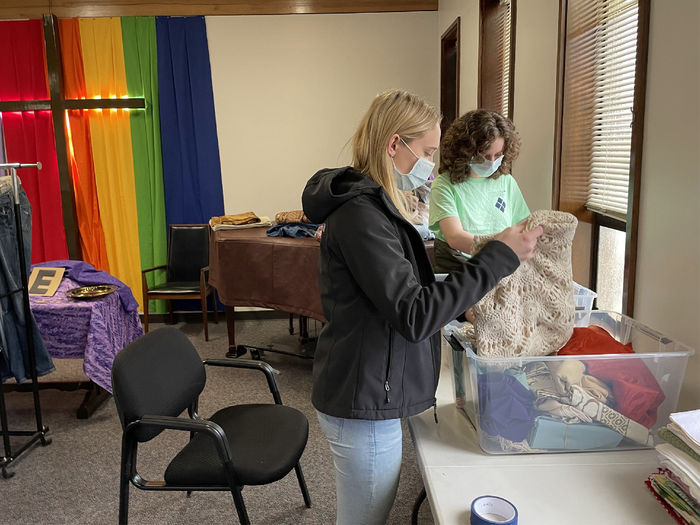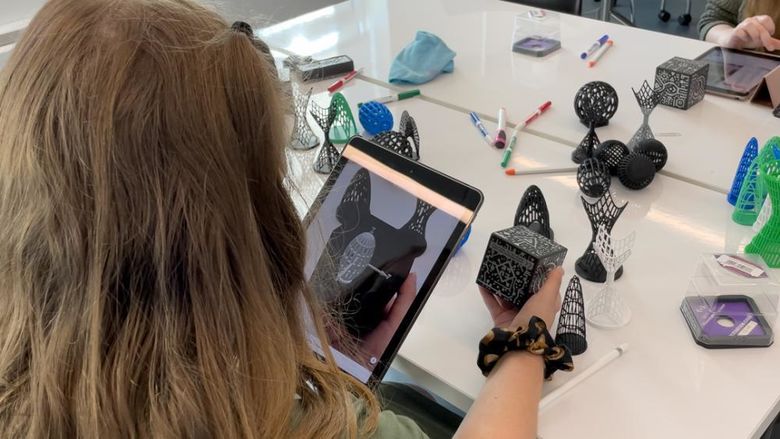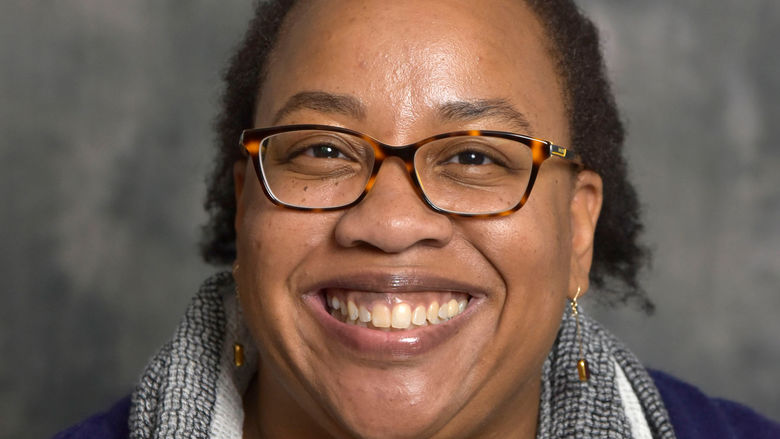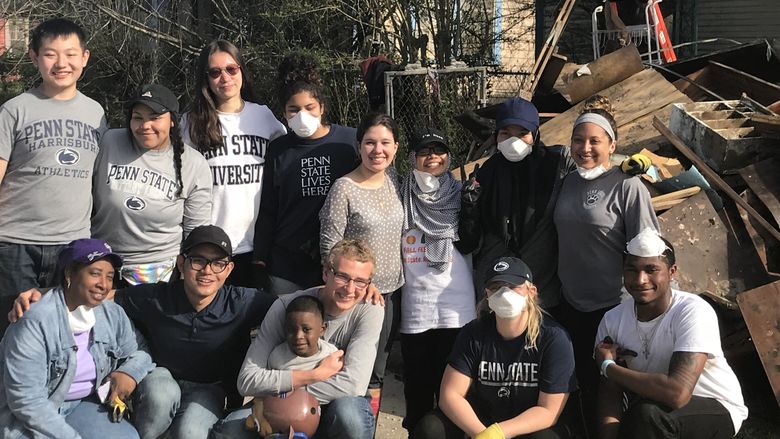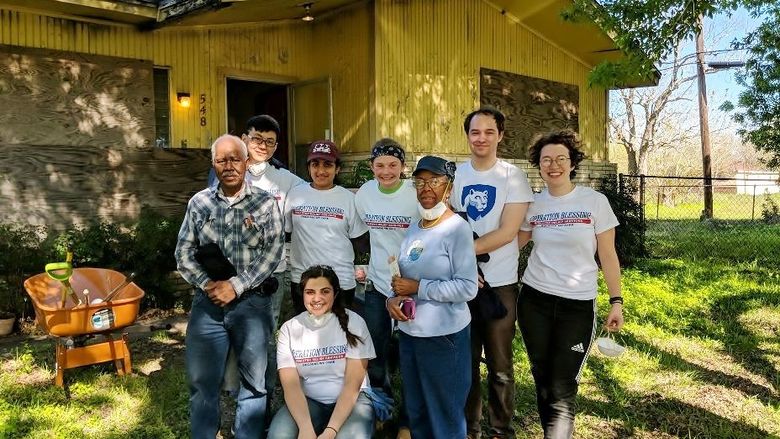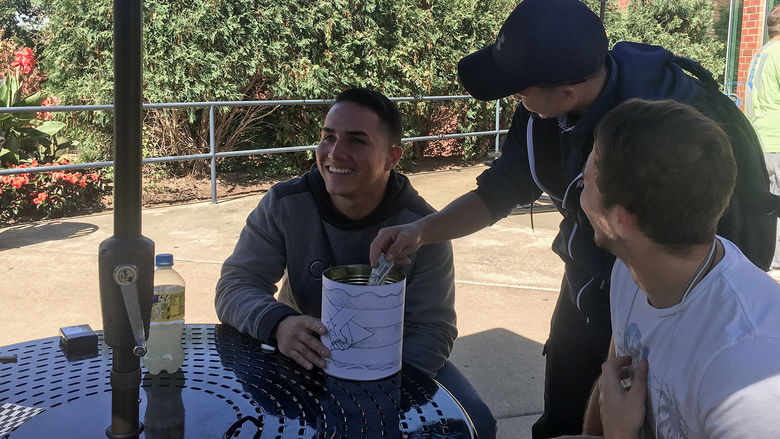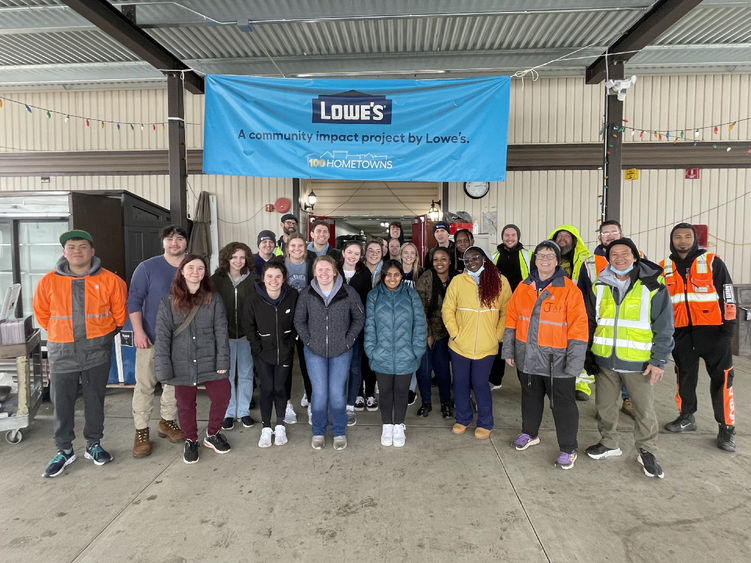
Students from Penn State DuBois and Penn State Greater Allegheny gather with other volunteers during their alternative spring break trip in Seattle.
DUBOIS, Pa. — For students, spring break is often seen as a time in which they can take time away from class, campus and perhaps travel to an exotic destination to relax. However, several students from Penn State DuBois and Penn State Greater Allegheny took their spring break trip to another level through the alternative spring break program.
Traveling to Seattle, Washington, as part of an embedded travel experience in CIVCM211N, 12 Penn State DuBois students, along with seven students from Penn State Greater Allegheny, spent their spring break on a full week of service and learning, with an end goal of helping as many people as possible in the Seattle area.
Seattle, along with many other metropolitan areas in the United States, sees struggles for some residents when it comes to poverty and homelessness.
According to the U.S. Census Bureau, in 2021the Seattle area saw approximately 10% of its population living below the poverty level. For a city its size, that equates to nearly 74,000 people. Seattle has also seen its struggles with homelessness in recent years. A study done by the city in 2020 on a single night in January found over 11,500 people experiencing homelessness. Of those people, 47% of them were completely unsheltered that night. More recent numbers from the State Department of Commerce estimated that the greater Seattle area had over 15,000 homeless people, the third largest number of homeless people in any major city in the United States. (Only New York City and Los Angeles had more at the time of the study.)
Another social issue that often goes hand in hand with poverty and homelessness is food insecurity. This means that an individual does not have access to sufficient food, or food that is of adequate quality to meet their basic needs. This is not limited to those living in poverty or without a home, as many families must make the difficult decision between food and healthcare, medicine, transportation, utilities and rent. To make ends meet, food is often cut out.
Students spent the week taking part in volunteer efforts to try to make as much impact as possible over their spring break. Marly Doty, trip organizer and lecturer in human development and family studies at Penn State DuBois, noted that this year marked the first time since 2020 that students were able to do a full week of service due to restrictions in place because of the pandemic. In what she described as a bittersweet experience, students got to experience firsthand what individuals experiencing poverty and homelessness are going through, but also learn and take part in actions and programs that are helping people as well.
It was powerful to watch the students tackle issues discussed in the classroom and translate them to real life issues people are facing—Marly Doty , Lecturer, human development and family studies
“Access to affordable housing is worse in many areas (such as Seattle) resulting in the growth of the number of unhoused people,” Doty said. “It was powerful, though, to watch the students tackle issues discussed in the classroom and translate them to real life issues people are facing.”
“When I first heard about alternative spring break, I knew that it was something I had to be part of,” HDFS student Skylar King said. “I will admit, I was skeptical at first. Dedicating an entire week of my time to others was a scary thought to a busy college student. It turns out, I wasn’t giving anything away. Instead, I was given the opportunity to meet new people, learn new things, and above all, serve people whose stories I will never forget.”
During the week in Seattle, students worked with numerous organizations to complete various tasks, such as: preparing and serving food at Ballard Lutheran Church and the Tacoma Rescue Mission, helping those in need of fresh produce and groceries receive them through the Tukwila Food Pantry and Northwest Harvest’s SODO Community Market, assisting with the housing needs of individuals through the Foundation for the Homeless and Poverty Management, as well as through the Low-Income Housing Institute (LIHI). Students also participated in projects with NorthWest Hospitality and the Salvation Army.
“Getting the opportunity to help different organizations and foundations with their mission, to help those in need, was the best way I could’ve spent my spring break,” finance student Alicia Bryan said. “One act of kindness at a time is how we can change the world.”
A common theme that was reflected by many of the students who were part of the trip is that the experience they were part of not only allowed them to help others, it allowed them to learn more about themselves as well.
“Alternative spring break was an eye-opening experience that allowed me to reach beyond my comfort zone,” actuary science student Madalynne Heckman said. “Not only was I able to learn more about people experiencing homelessness and poverty, but I was able to learn more about myself and what I can do to help.”
Business major Aaron Gankosky echoed those thoughts. “It was an unforgettable learning experience that not only allowed me to learn about those experiencing homelessness, but also taught me more about myself.”
Above all, those who benefited from the services that these students performed will never forget them, and the entire experience is something that the students will not forget either.
“It was an incredible, unforgettable and insightful experience,” broadcast journalism major Louise Bennett said. “I am so grateful to have been able to serve in Seattle with wonderful people!”
This sentiment was shared by HDFS major Jordan Bundy. “I had an unforgettable experience on the trip. I was able to make personal connections and learn the stories of others who are experiencing homelessness, food insecurity and poverty. It was worth all the hard work and hours we put in together throughout the week.”
